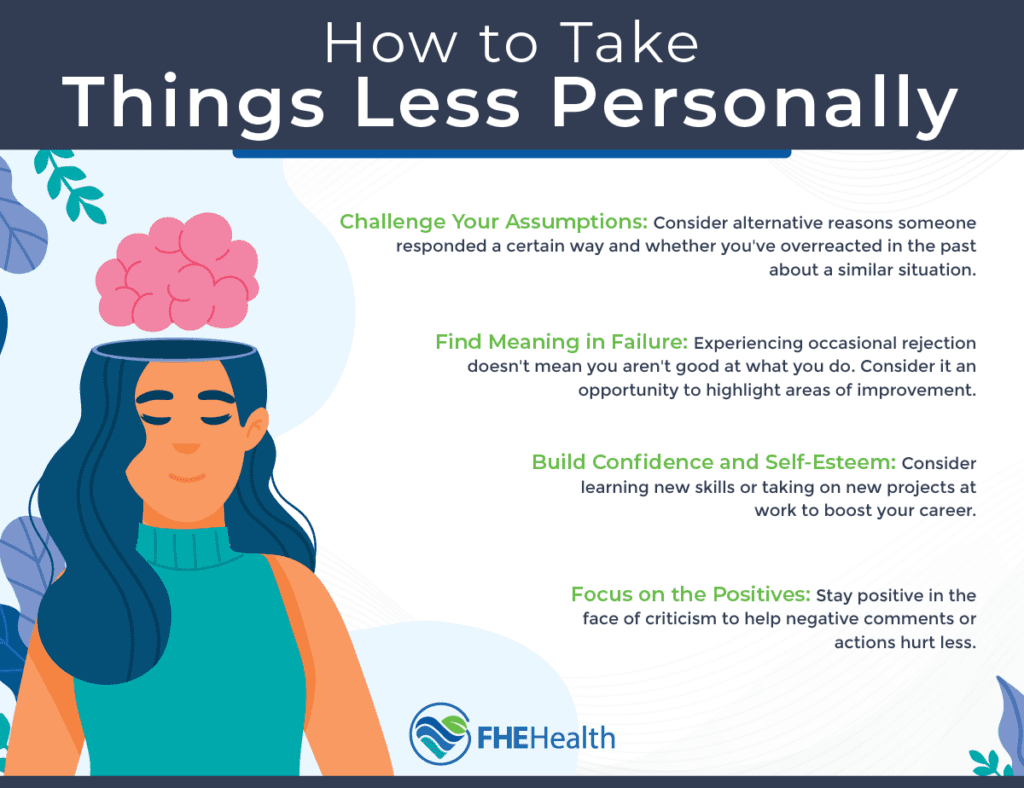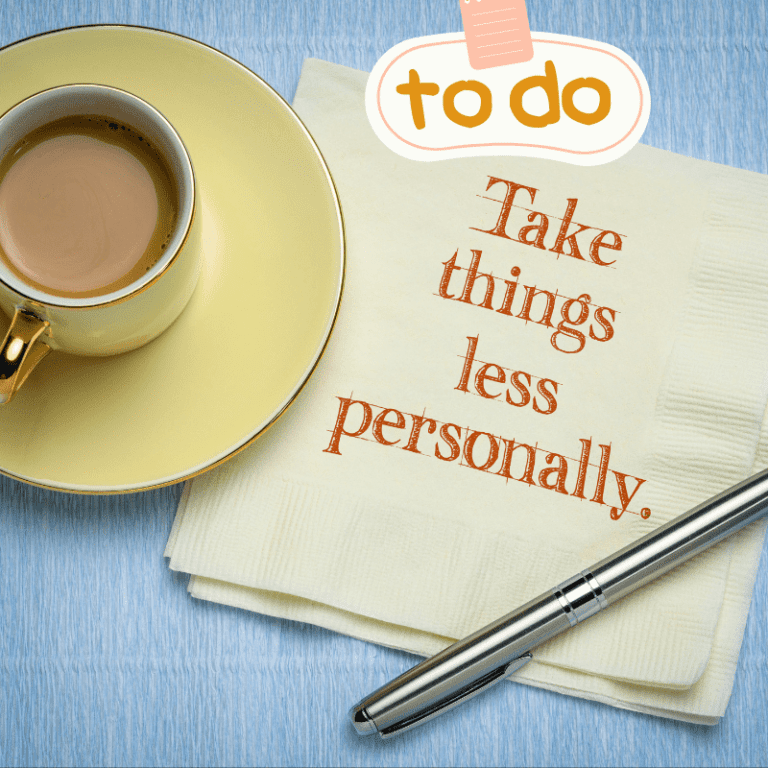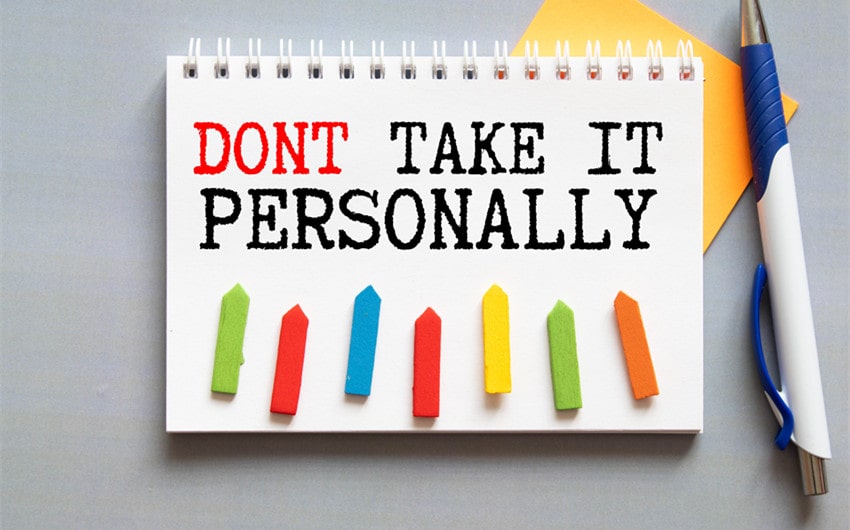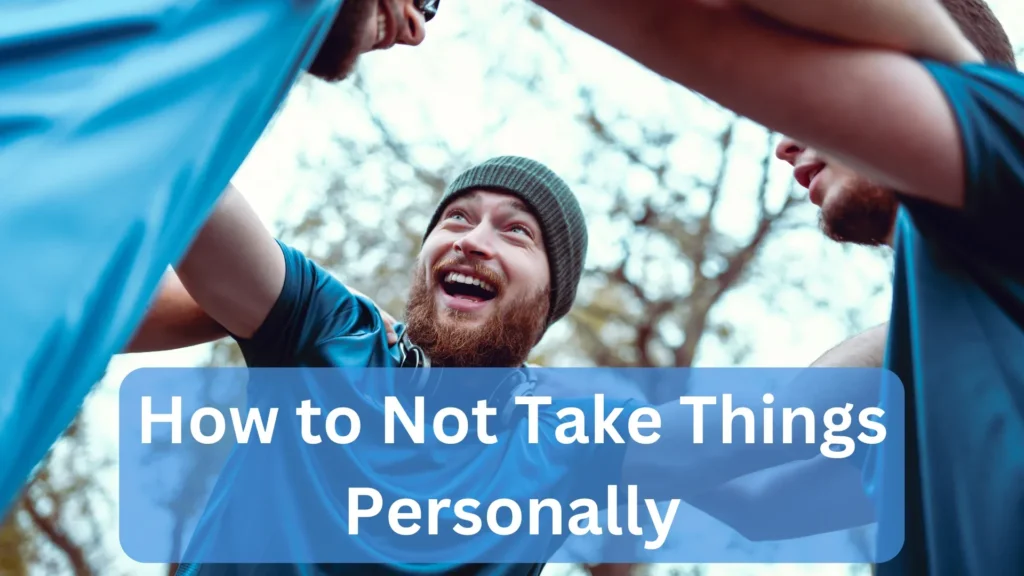How To Take Things Less Personally

Imagine you're at a bustling farmers market, the air thick with the scent of ripe berries and freshly baked bread. A vendor, usually jovial, snaps at you for accidentally bumping into their display. Your heart sinks. Did you do something terribly wrong? Are they always this grumpy? The incident replays in your mind, overshadowing the simple joy of a sunny Saturday morning.
Taking things personally is a common human experience, but it doesn't have to rule your life. Learning to detach and view situations objectively can dramatically improve your relationships, reduce stress, and boost your overall well-being. This article explores practical strategies for cultivating this crucial skill, transforming perceived slights into opportunities for growth.
Understanding the Roots of Personalization
Why do we take things so personally? Often, it stems from our past experiences and ingrained beliefs. Early childhood interactions, particularly those involving criticism or rejection, can shape our self-perception and sensitivity to perceived threats.
Dr. Kristin Neff, a leading researcher in self-compassion, emphasizes the role of self-criticism. When we have a harsh inner critic, we are more likely to interpret external events as confirmation of our negative beliefs about ourselves.
Furthermore, our brains are wired to prioritize survival. The amygdala, the brain's emotional center, can quickly trigger a fight-or-flight response when it perceives a threat, even if that threat is merely a perceived insult or slight.
Strategies for Detachment
Fortunately, there are tangible ways to break free from the cycle of personalization. The key is to practice mindfulness, challenge negative thoughts, and cultivate self-compassion.
1. Practice Mindfulness and Observe Your Reactions
Mindfulness involves paying attention to the present moment without judgment. When someone says something hurtful or critical, notice your initial reaction without getting swept away by it.
Take a deep breath and observe the physical sensations in your body. Are you feeling your heart racing? Is your stomach churning? By acknowledging these sensations, you create space between yourself and your emotional response.
2. Challenge Negative Thoughts
Once you've observed your reaction, examine the thoughts fueling it. Are you assuming the worst about the other person's intentions? Are you catastrophizing the situation?
Ask yourself: "Is this thought truly accurate? Is there another possible explanation for their behavior?" Often, people's actions have little to do with you and more to do with their own internal state.
3. Cultivate Self-Compassion
Self-compassion involves treating yourself with the same kindness and understanding you would offer a friend. This includes recognizing that everyone makes mistakes and experiences setbacks.
Dr. Neff's research suggests that self-compassion is a powerful antidote to self-criticism and can significantly reduce the tendency to take things personally. Remember, being imperfect is part of being human.
4. Focus on What You Can Control
Much of what happens in life is beyond our control. We can't control other people's actions or opinions. However, we can control our own reactions and how we choose to respond.
Instead of dwelling on what you can't change, focus on what you can. Can you learn something from the experience? Can you set healthier boundaries? Can you forgive yourself and move on?
5. Communicate Assertively
Sometimes, addressing the situation directly is the best course of action. However, it's important to communicate assertively, rather than aggressively or passively. Assertive communication involves expressing your needs and feelings in a clear, respectful, and non-blaming manner.
For example, instead of saying "You always make me feel bad," try "I felt hurt when you said that. Can we talk about it?"
The Benefits of Detachment
Learning to take things less personally is not about becoming indifferent or apathetic. It's about cultivating emotional resilience and protecting your well-being.
By detaching from perceived slights, you free yourself from unnecessary stress and anxiety. You improve your relationships by responding with greater understanding and empathy. And you create more space for joy, peace, and self-acceptance in your life.
In a world filled with constant stimuli and potential for miscommunication, the ability to detach and respond with grace is a valuable skill. It allows you to navigate challenges with greater ease, build stronger connections, and live a more fulfilling life. So, the next time you find yourself taking something personally, remember to breathe, challenge your thoughts, and extend yourself a little compassion. You deserve it.


















